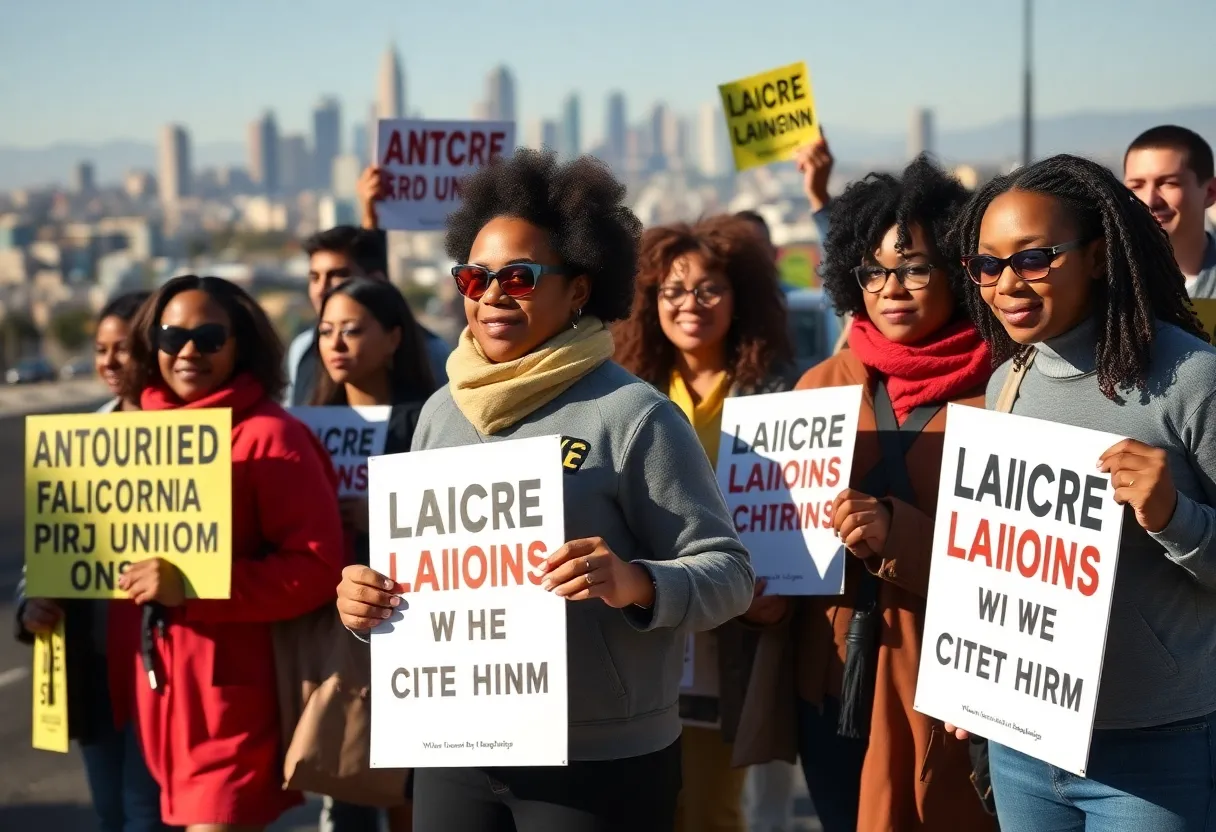California, October 4, 2025
News Summary
California Governor Gavin Newsom has signed AB 1340, allowing Uber and Lyft drivers to form unions and negotiate contracts for better pay and working conditions. Effective January 1, this landmark law aims to enhance workplace rights for app-based drivers. Despite initial opposition from ride-hailing giants, the legislation marks a crucial step towards empowering drivers in the gig economy, although challenges regarding implementation and negotiations persist. Critics express concerns about the effectiveness of this framework amidst ongoing struggles for driver rights.
California Governor Gavin Newsom has signed landmark legislation enabling Uber and Lyft drivers in California to negotiate a first union contract, despite being classified as independent contractors. The law, designated as AB 1340, is set to take effect on January 1. This move is regarded as a significant milestone in drivers’ long-standing efforts to secure workplace rights.
The new legislation, authored by Assemblymembers Buffy Wicks (D-Oakland) and Marc Berman (D-Menlo Park), allows for the creation of unions for app-based drivers. Certified unions will have the authority to negotiate on behalf of drivers regarding pay, working conditions, and benefits, along with protections against retaliation for participating in union activities. Unlike employees, independent contractors typically lack the right to collectively bargain under federal law.
AB 1340 mandates that app-based companies and certified unions must negotiate in good faith over crucial driver-related issues such as pay, deactivations, and paid leave. The Public Employment Relations Board will supervise union elections and ensure adherence to any bargaining agreements reached. Initially, both Uber and Lyft opposed the legislation but later altered their stance after negotiating reduced insurance coverage requirements through a separate bill, SB 371.
While the legislation is a win for drivers who aim to have more authority in their workplace, critics indicate that significant hurdles and barriers persist. Convincing large tech companies such as Uber and Lyft to enhance pay and benefits remains a daunting task. To proceed with forming a union, labor leaders must gather signatures from at least 10% of the approximately 800,000 ride-hailing drivers and secure a 30% approval rate for formal union recognition. Activists express concern that without guarantees for the right to strike, union leverage and bargaining power may be diminished.
The law follows a recent ruling by the California Court of Appeals that allowed lawmakers to authorize collective bargaining rights for drivers, overcoming restrictions posed by Proposition 22, which classified drivers as independent contractors in 2020. Experts have voiced skepticism about the long-term impacts of this new framework, suggesting Uber and Lyft will continue to control drivers’ earnings and working conditions.
Labor leaders are expected to face administrative challenges before drivers can commence formal negotiations, with some estimating that discussions might not begin until 2026. Moreover, a comprehensive wage theft lawsuit against Uber and Lyft is currently in process, with drivers aiming to recover back wages and improve future compensation.
AB 1340, along with its complementary legislation, seeks to balance cost reductions for riders while bolstering drivers’ voices in the gig economy. With this development, California has become the second state in the United States, following Massachusetts, to create pathways for unionization of app-based drivers.
Key Features of AB 1340
- Create unions for Uber and Lyft drivers in California.
- Certified unions can negotiate pay, benefits, and working conditions.
- Effective date: January 1.
- Supervised by the Public Employment Relations Board.
- Requires signatures from at least 10% of drivers for union formation.
- Forms part of ongoing struggle for driver rights post-Proposition 22.
- Balancing act to maintain costs for riders while empowering drivers.
Summary
The approval of AB 1340 marks a critical advancement for gig workers in California, representing an effort to extend essential workplace rights to drivers who have long fought for recognition and fair treatment. Its potential impact on the future of the gig economy and the collective bargaining rights of app-based drivers remains to be fully realized.
FAQ
What does AB 1340 allow for Uber and Lyft drivers?
AB 1340 allows Uber and Lyft drivers in California to negotiate a first union contract despite being classified as independent contractors.
When does the law take effect?
The law will take effect on January 1.
What can certified unions negotiate on behalf of drivers?
Certified unions can negotiate over pay, working conditions, and benefits, including protections against retaliation for union activities.
What is required for drivers to form a union?
Labor leaders must secure signatures from at least 10% of the approximately 800,000 ride-hailing drivers and achieve a 30% approval to formally recognize the union.
What organization will oversee union elections?
The Public Employment Relations Board will oversee union elections and ensure compliance with bargaining agreements.
What are critics’ concerns about the law?
Critics argue that while the law empowers drivers to organize, significant barriers and hurdles remain, such as convincing the tech giants to grant better pay and benefits.
Deeper Dive: News & Info About This Topic
- Politico: Newsom Signs Landmark Deal for Uber/Lyft Driver Unions
- New York Times: Uber and Lyft Drivers’ Unionization Effort in California
- Los Angeles Times: California Lawmakers Propose Giving Ride-Hailing Drivers Right to Unionize
- Google Search: Uber Lyft Drivers Unionization
- Wikipedia: Union

Author: STAFF HERE HOLLYWOOD
The Hollywood Staff Writer represents the experienced team at HEREHollywood.com, your go-to source for actionable local news and information in Hollywood, Los Angeles County, and beyond. Specializing in "news you can use," we cover essential topics like product reviews for personal and business needs, local business directories, politics, real estate trends, neighborhood insights, and state news affecting the area—with deep expertise drawn from years of dedicated reporting and strong community input, including local press releases and business updates. We deliver top reporting on high-value events such as the Hollywood Bowl summer concerts, the Hollywood Christmas Parade, film premieres at TCL Chinese Theatre, and festivals at the Magic Castle. Our coverage extends to key organizations like the Hollywood Chamber of Commerce and Visit Hollywood, plus leading businesses in entertainment, dining, and tourism that define the local economy. As part of the broader HERE network, including HERELosAngeles.com, HEREBeverlyHills.com, HEREAnaheim.com, and HEREHuntingtonBeach.com, we provide comprehensive, credible insights into Southern California's dynamic landscape.



